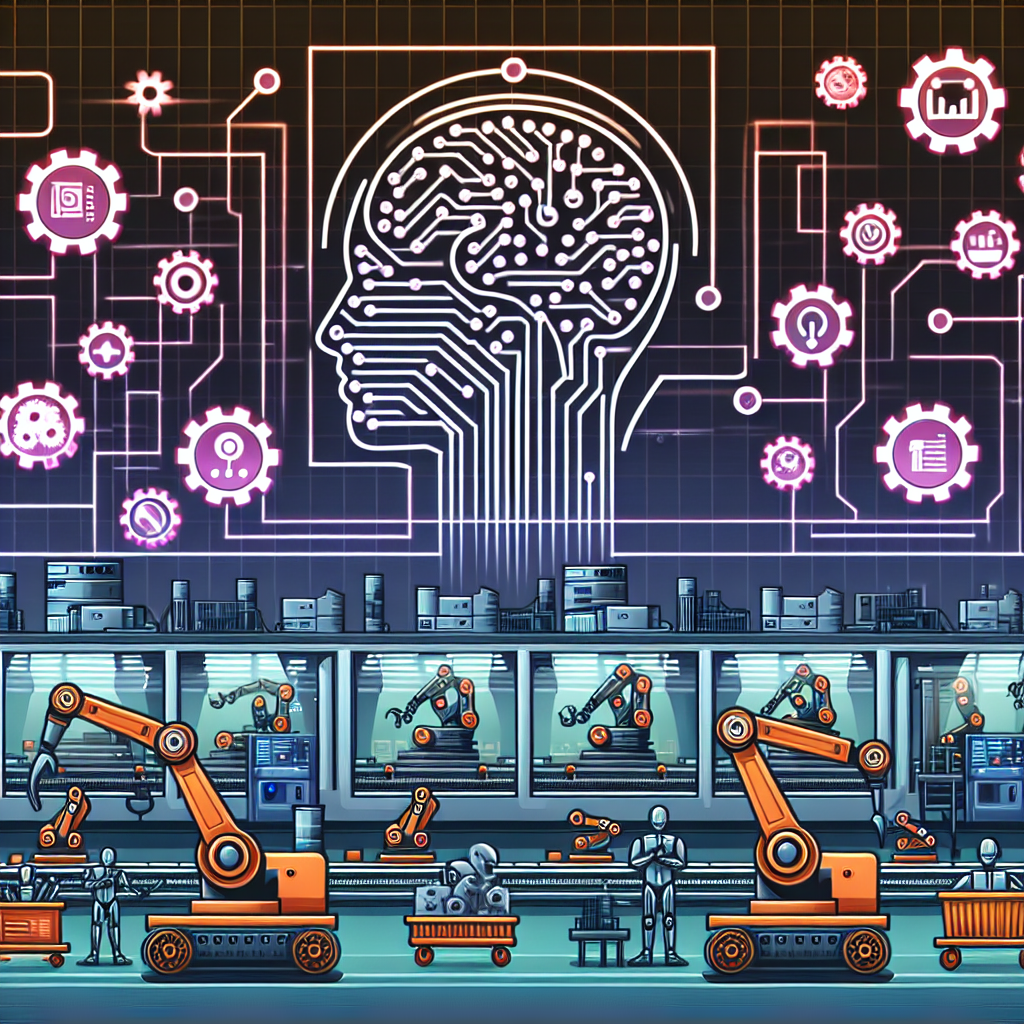Artificial Intelligence (AI) has revolutionized many industries, including manufacturing, by enabling companies to automate processes and increase efficiency. AI-driven process automation in manufacturing involves the use of machine learning algorithms and robotics to streamline operations and improve productivity. This technology has the potential to transform the way manufacturing companies operate, leading to increased competitiveness and profitability.
AI-driven process automation in manufacturing involves the use of various technologies to streamline operations and improve efficiency. These technologies include machine learning algorithms, robotics, and data analytics. Machine learning algorithms are used to analyze large amounts of data and identify patterns that can help optimize manufacturing processes. Robotics are used to automate repetitive tasks and perform complex operations with precision and efficiency. Data analytics is used to analyze data from various sources and provide insights that can help improve decision-making.
One of the key benefits of AI-driven process automation in manufacturing is increased efficiency. By automating repetitive tasks and optimizing processes, companies can reduce the time and resources required to produce goods. This can lead to significant cost savings and increased productivity. AI-driven process automation can also improve the quality of products by reducing errors and defects. By using machine learning algorithms to analyze data, companies can identify potential issues early on and take corrective actions to prevent defects from occurring.
Another benefit of AI-driven process automation in manufacturing is improved decision-making. By using data analytics to analyze data from various sources, companies can gain insights into their operations and identify areas for improvement. This can help companies make more informed decisions and optimize their processes to achieve better results. AI-driven process automation can also help companies respond more quickly to changes in the market by providing real-time insights into customer preferences and market trends.
AI-driven process automation in manufacturing also has the potential to transform the workforce. By automating repetitive tasks, companies can free up employees to focus on more strategic activities that require human judgment and creativity. This can lead to a more engaged and motivated workforce, as employees are able to focus on tasks that add value to the company. AI-driven process automation can also help companies attract and retain top talent by offering employees opportunities to work on cutting-edge technologies.
Despite the many benefits of AI-driven process automation in manufacturing, there are also challenges that companies may face when implementing this technology. One of the key challenges is the initial investment required to adopt AI-driven process automation. Companies may need to invest in new technologies, infrastructure, and training to implement AI-driven process automation successfully. Additionally, companies may face resistance from employees who are hesitant to adopt new technologies or fear that automation will replace their jobs.
Another challenge of AI-driven process automation in manufacturing is the need for data security and privacy. Companies need to ensure that the data collected and analyzed by AI systems is secure and compliant with regulations. This can be a challenge, especially for companies that operate in highly regulated industries such as healthcare or finance. Companies also need to consider the ethical implications of using AI-driven process automation, such as the impact on employees and society as a whole.
Despite these challenges, the benefits of AI-driven process automation in manufacturing far outweigh the risks. Companies that successfully implement AI-driven process automation can achieve significant cost savings, increased productivity, and improved quality. By leveraging machine learning algorithms, robotics, and data analytics, companies can streamline their operations and gain a competitive edge in the market.
FAQs:
Q: What is AI-driven process automation in manufacturing?
A: AI-driven process automation in manufacturing involves the use of machine learning algorithms, robotics, and data analytics to streamline operations and improve efficiency.
Q: What are the benefits of AI-driven process automation in manufacturing?
A: The benefits of AI-driven process automation in manufacturing include increased efficiency, improved decision-making, and the transformation of the workforce.
Q: What are the challenges of implementing AI-driven process automation in manufacturing?
A: Challenges of implementing AI-driven process automation in manufacturing include the initial investment required, resistance from employees, and data security and privacy concerns.
Q: How can companies overcome the challenges of implementing AI-driven process automation in manufacturing?
A: Companies can overcome the challenges of implementing AI-driven process automation by investing in new technologies, providing training to employees, and ensuring data security and privacy compliance.

